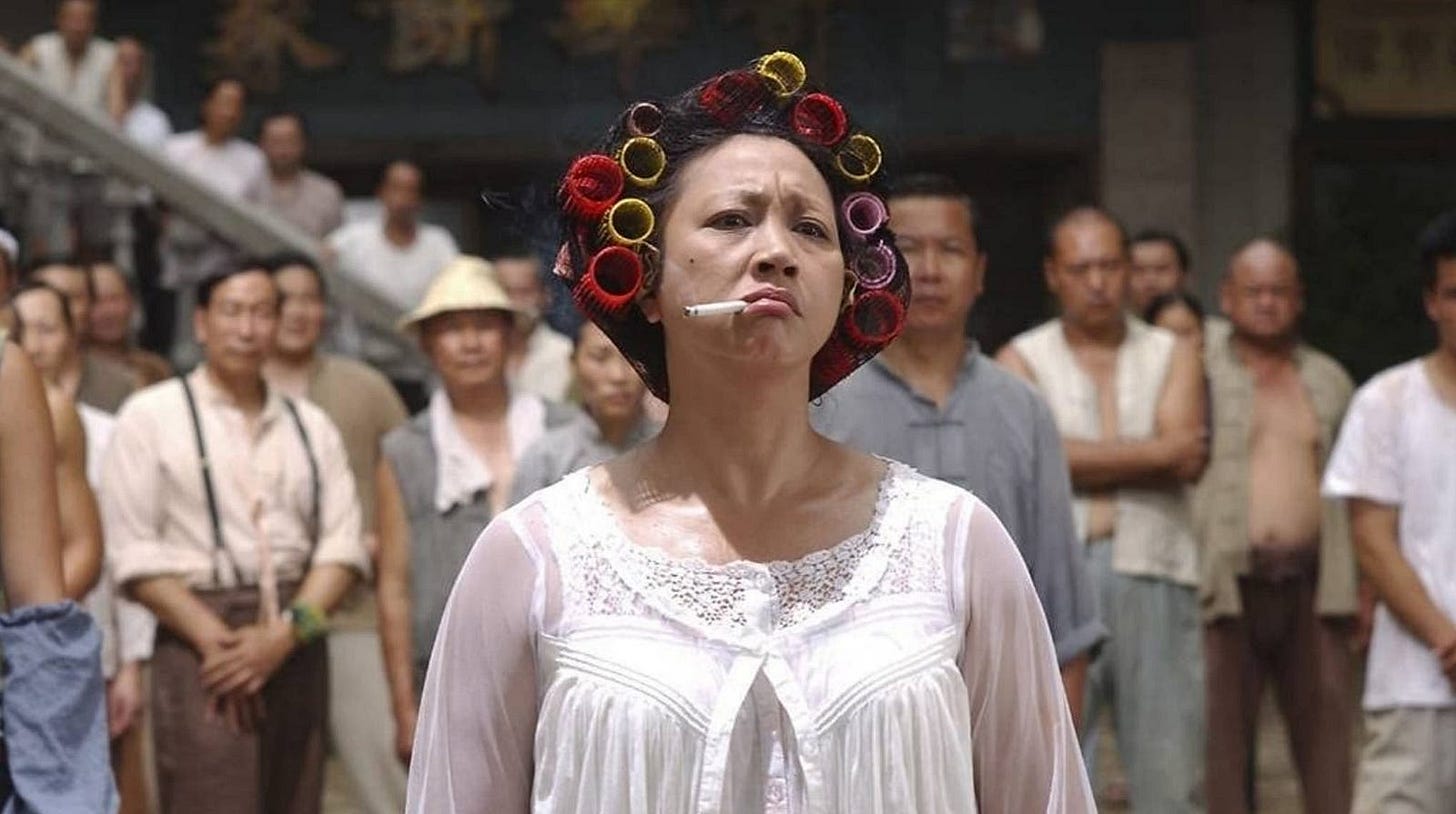The way Asian women are perceived, and sometimes idealized, isn’t exactly a new conversation. But it’s rarely spoken about openly. In The White Lotus, one character lays it bare:
“I picked Thailand because I always had a thing for Asian girls. And when I got here, I was like a kid in a candy store… The form of this cute Asian girl, why does it have such a grip on me?”
Across Southeast Asia, there’s something like a “white American dream.” It’s not only about making money — it’s about chasing the symbols of whiteness and Western privilege that seem to promise more.
In Guam, a multi-ethnic island with a strong US military presence, the arrival of American naval ships creates a rare opportunity. Each year, two to three ships dock, bringing thousands of military men, backed by US government paychecks and looking for a break, connection, or maybe something more. For many locals hoping to leave the island, finding a military man is considered a “normal” path — an open secret woven into everyday conversation.
Military men or not, Filipino women can travel to Guam without a visa — and if they give birth there, their children are considered born on “US soil” and receive US citizenship. Some women hope to connect with military men stationed on the island, and if that relationship continues after deployment, it can become a path to moving to the mainland US.
All of this was shared with me by a local Guamanian woman married to a serviceman. This isn’t fiction. I’m here just to tell the stories of the people I meet. And as she put it, this is simply “normal.”
In much of Asia, lighter skin is still considered more desirable. Thai beauty brand SnailWhite has become a popular skincare staple. Sometimes, though, the pressure to look whiter drives women toward risky beauty products, including creams laced with mercury. Meanwhile in the West, the ideal flips — many women strive for a sun-kissed tan.
So why do beauty ideals flip?
Maybe beauty is rarely just about looks. It’s about who you want to be seen as and what kind of life you want others to believe you lead.
In much of Asia, fair skin has long symbolized wealth, class, and femininity. Historically, it meant you didn’t have to work under the sun. Add to that centuries of colonialism and Western media dominance, and whiteness began to signify not just status, but modernity, sophistication, even global belonging. Meanwhile, in the West, tanned skin is a sign that you’re rich enough to vacation, relaxed enough to sunbathe, and far from the fluorescent-lit office grind.
It’s strange how the same face can be admired in one place and overlooked in another.
The rise in anti-Asian hate during the COVID-19 pandemic laid bare the fragile, conditional nature of how Asians are perceived in the West. From being shoved on subways to blamed for “spreading COVID,” many found themselves targets of a fear that quickly turned violent. Even during cultural moments like Chinese New Year, mass shootings and headlines linked to Asian communities stirred fresh anxiety. For years, microaggressions — “Where are you really from?” or comments on lunchbox smells — were easy to brush off. But the pandemic cracked that illusion. Suddenly, the same features that were once exoticized became weaponized.
I remember speaking to a senior data leader at an investment bank in London about my challenges finding the right cofounder. He looked at me and asked, “Why don’t you work with a Chinese woman? They’re some of the best people I’ve worked with. One of them started as my intern, and now she’s more senior than me.”
And when I got into the Fighters Program at Station F, I tried to convince a technical Chinese founder to partner with me. We both knew that teaming up could increase our chances of getting selected. She already had a few people working under her but struggled with commercialization, while I brought complementary skills. After a few rounds of back-and-forth, she finally said, “Let me be honest with you. I need to partner with a white man.”
How did we come to absorb the very hierarchies we were meant to question?
The startup path has stripped away my illusions. When you’re trying to build something from scratch, everything gets reduced to leverage. It’s made me wonder: is race now just another form of leverage, another way to signal capital and status in a globalized world?
The other day during my tennis class, I ran into a Chinese student I’d only met through our shared coach. She now trains with someone else, but we crossed paths on the same court. She turned to my coach, a married British man, and joked, “Seduce me.” We all laughed.
As Chinese Gen Z grow up wealthier, more nationalistic, and increasingly confident that they don’t need the West, the table may be turning. Some of my Asian female friends have told me, quite openly, that they’re now chasing attractive men.
To be clear, I’m not here to complain about being an Asian woman. The truth is, it comes with certain advantages.
Sometimes, stereotypes can quietly work in your favor. On Friday and Saturday nights in Soho, calling an Uber is almost impossible. I deliberately chose a profile picture that made my identity visible, playing into the perception of being a “safe” rider.
After a few months of living in my current flat, my Brazilian neighbor once said to me, quite sincerely, “When I saw you moving in, I was so happy.” My landlady never raised the rent — something her longtime handyman later told me was rare. “She must really like you,” he said.
Even my ex-boyfriend used to joke, “You have a real talent for managing property.”
So I suppose, whether admired or underestimated, we can make very good landladies.
We find our ways to hold ground, sometimes through grace, sometimes through grit.




